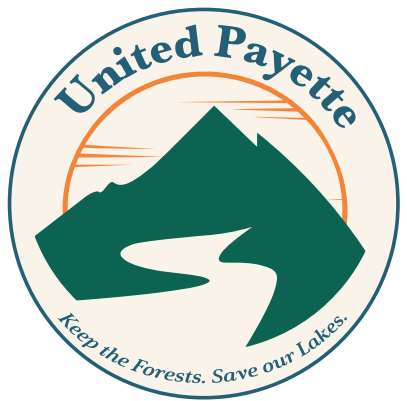LTE: Auction Process for Public Sale of Land On Cougar Island
The purpose of this editorial is to provide information on the auction process that will be used for the public sale of land on Cougar Island. The State of Idaho, through Idaho Department of Lands (IDL), holds real property (land) that may be available for public sale. This includes state endowment lands. Article IX, Section 8 of the Idaho Constitution “Education and School Lands” describes the requirements and restrictions around sale of state endowment lands.
Parties interested in purchasing endowment land may generally initiate the sale by an application or nomination process through IDL. Upon application or nomination, the Land Board would begin a procedure to approve or reject a sale pursuant to Idaho Code (starting at section 58-331). If approved, the IDL would perform an appraisal, advertise the property four weeks prior to the auction, and set a date for the live, oral public auction. The appraisal amount establishes the minimum bid, endowment land can’t be sold for less than the appraised value.
The IDL’s Real Estate Services Bureau in Boise is responsible for performing land sales. Per the Idaho Constitution, the annual sale of endowment land by the state of Idaho may not exceed one hundred sections (64,000 acres) in any one year. Also, a single individual, company, or corporation may not acquire more than 320 acres of endowment land. Proceeds from the sale of endowment lands through the public auction process are held in the Land Bank Account and can be used to purchase replacement endowment lands. If revenues from land sales are not used within five years, these revenues are transferred into the Permanent Endowment Fund and are no longer available to spend. The State can only distribute the income from the Permanent Endowment Fund to beneficiaries, not the principal.
IDL would use the public auction process to offer endowment land on Cougar Island in Big Payette Lake for sale. Most likely, IDL would organize the auction based on the five parcels currently platted. In addition, the IDL would also seek a bid for the entire island. IDL would compare the bid on the entire island to the total value of the bids on the five individual parcels. Per the Idaho Constitution, the state is required “to secure the maximum long term financial return” from endowment lands. In the case of sales, IDL sets minimum bid prices as the appraisal prices and holds a competitive public auction to meet this requirement. To note, a successful bidder must reimburse the owner of any existing improvements on endowment land, and bidders participating in an auction are required to register and provide an upfront fee to IDL.
In the past, auctions of endowment lands around Payette and Priest lakes have generated controversy. In the auction process, no preference is given to a lessee who may have an improvement such as a house or cabin on the land at time of sale, other than they would not have to pay for the improvement. In some cases, lessees who own cabins or houses on leased endowment land have not been able to afford the sale price at auction. One set of lessees sued the State when it refused to renew their leases and opted to auction off parcels instead. In the 2012 case Wasden vs Idaho Board of Land Commissioners, the Idaho Supreme Court found that exempting cottage site sales from conflict auctions would be unconstitutional. As IDL begins to execute the Payette Endowment Lands Strategy (PELS) plan, Cougar Island will provide a window into the disposition process as the Department reevaluates its endowment land ownership around Payette Lake.
Jeff Mousseau, United Payette Steering Team Member
McCall, ID
